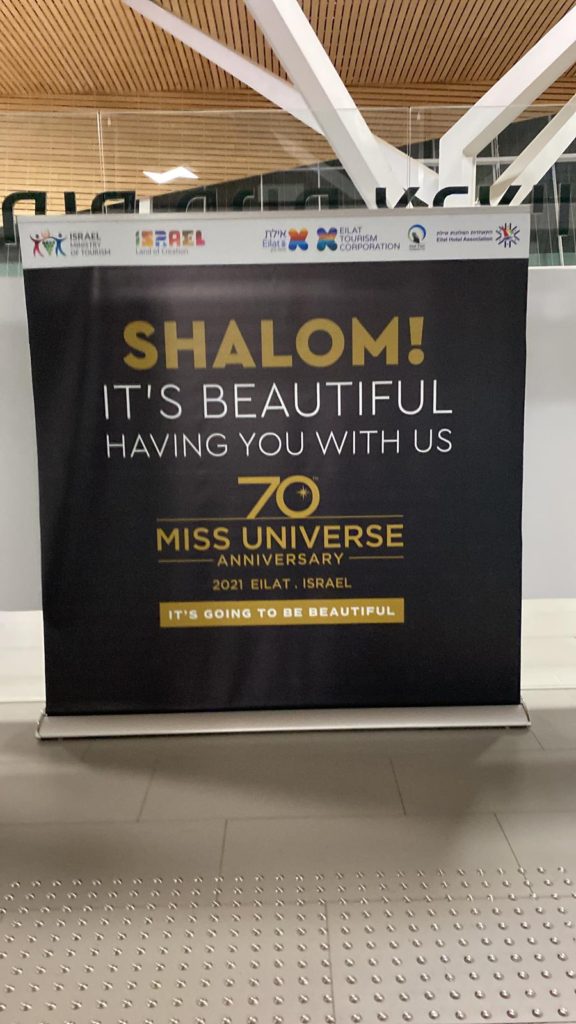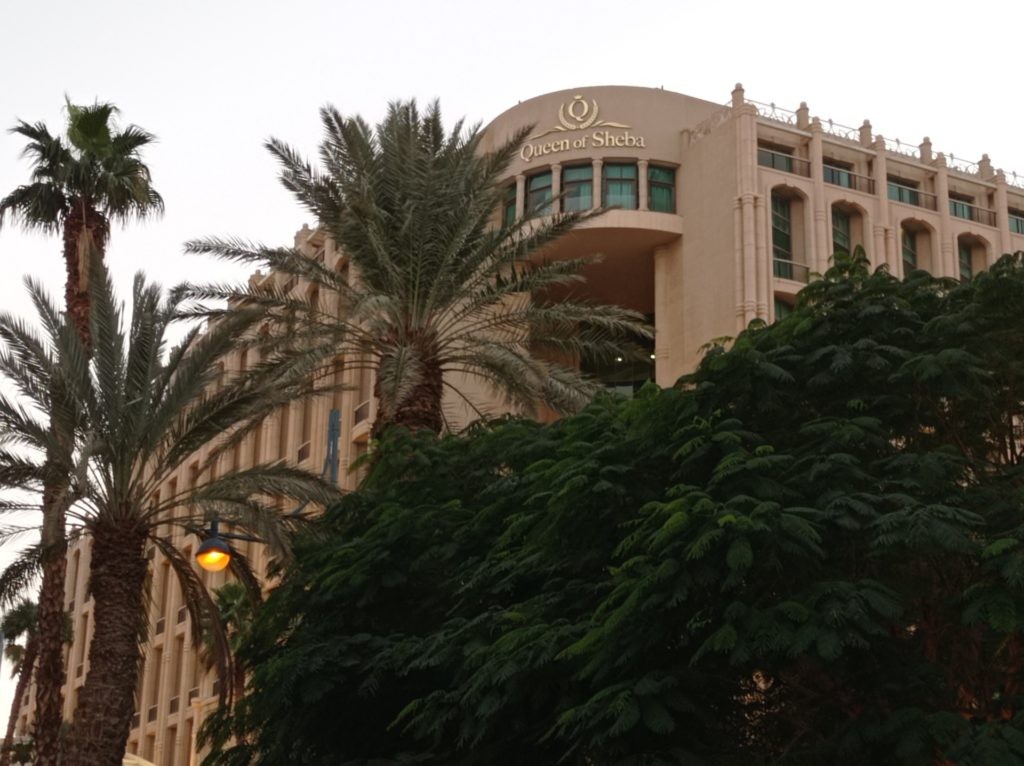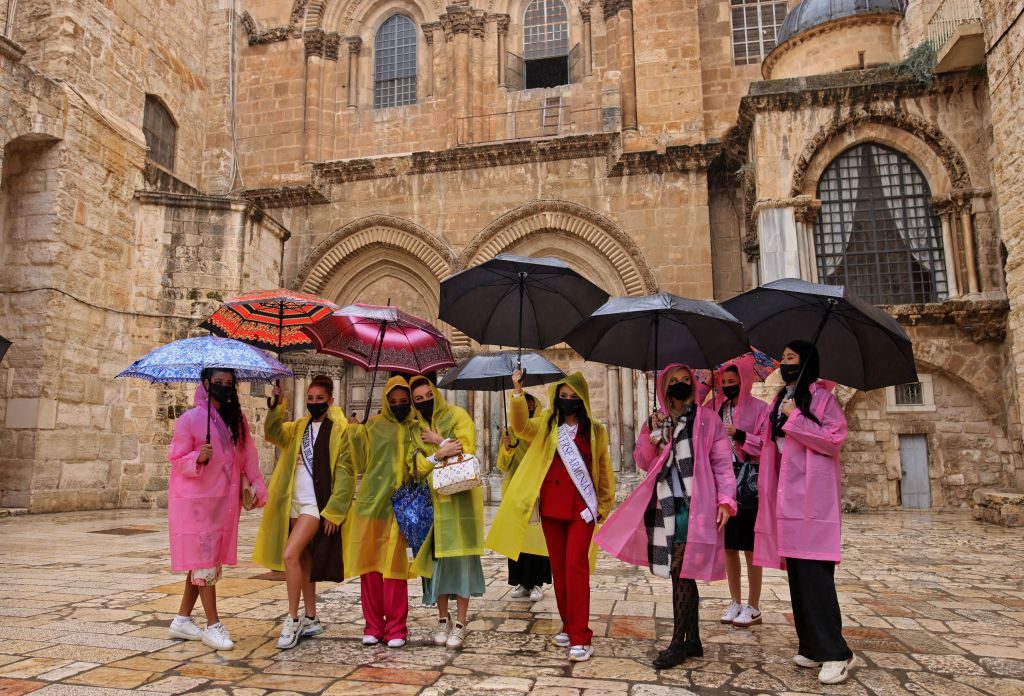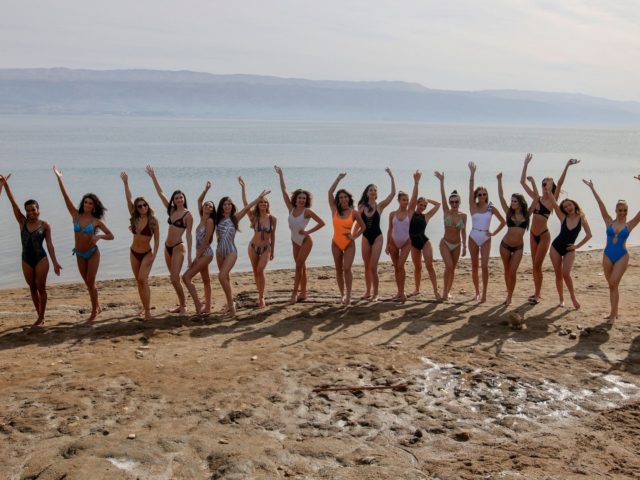EILAT, ISRAEL – The security to access the port in the southern Israeli city of Eilat is so tight on Thursday, one would be forgiven for mistaking it for the site of a UN summit of world leaders, not the location of the 70th annual Miss Universe pageant.
As one source affiliated with the organizers of the pageant explained to Breitbart, the beefed-up security measures are because the Port of Eilat is under the jurisdiction of the Shin Bet security agency.
Still, with the drama that has unfolded in the weeks leading up to the pageant, it’s fitting that one of the most powerful security agencies in the world is in charge of protecting the 80 women taking part.
The most prominent actor in that drama, of course, is the old favorite – good old Jew hatred.
The anti-Israel Boycott, Divestment and Sanctions (BDS) movement came in fast and heavy, swinging its wrecking ball of hate at various contestants in an attempt to persuade them to nix the pageant.

Beautiful days: The southern Israeli city of Eilat welcomes Miss Universe contestants. (Deborah Brand/Breitbart News)
In the case of Miss South Africa, it failed miserably, with the lovely Lalela Mswane defying both homegrown BDS activists and the South African government and taking part in the pageant. The 24-year-old, who is a qualified lawyer, said she views her participation in the pageant as a chance “to contribute to a process of dialogue and peace.”
Turkey’s contestant, 22-year-old Cemrenaz Turhan, also came under intense criticism by BDS activists for choosing to come.
“I’m not a politician, I came here for a competition,” she responded. “I love all countries, I didn’t think for a second that I would boycott Israel — I’m not thinking about that.
“I’m very happy to be here, the Israeli people are so kind and so amazing,” she added.
Best supporting actor in the pageant drama was the global pandemic. Israel took the most aggressive steps in the world to beat the Omicron variant, including closing its borders at the end of last month to all foreign nationals.
The news sparked an outcry among both Israelis and diaspora Jews, who argued that it was a sham the country barred people from visiting their Israeli families while beauty pageant contestants were allowed to enter.
It especially infuriated people when the news emerged that one contestant, Miss France Clemence Botino, tested positive for the Omicron strain following her arrival in Israel.

The Queen of Sheba Hotel, Eilat, where several of the Miss Universe contestants are staying. (Deborah Brand/Breitbart News)
The thrice-vaccinated beauty queen was released from quarantine after 10 days and cleared to join the competition. “Life has brought me to Israel and everything is ready. Every situation [is] supposed to make us stronger,” she said.
And then there’s Indonesia and Malaysia. Both Muslim-majority countries leveraged the pandemic to excuse its Jew hatred, blaming their contestants’ no-show at the pageant on the virus.
Still, there were several diplomatic wins for Israel from other Muslim-Arab states. The fact that Bahrain chose this year’s pageant in Israel – with which it normalized relations last year — to be the first time it would send a contestant, is no small thing. Morocco, which also cemented diplomatic ties with Israel last year, is taking part in the contest for the first time since 1978.
The North African country’s contender Kawtar Benhalima, described being in Israel as a “wholesome experience.”
Benhalim, 22, told The Times of Israel that she was also “pleasantly surprised by the amount of people [in Israel] that tell me that their parents and grandparents were Moroccan. It’s beautiful, I can really, really feel and notice the connectivity.”

Contestants of the Miss Universe pageant pose in front of the Holy Sepulchre in Jerusalem’s Old City on December 1, 2021 as they tour the Holy City ahead of the 70th Miss Universe event to be held in Israel’s Red Sea resort of Eilat on December 12. (AHMAD GHARABLI/AFP via Getty Images)

Contestants of the Miss Universe pageant pose for a picture during a visit to the Dead Sea, south of the West Bank city of Jericho, ahead of the 70th Miss Universe event to be held in Israel’s Red Sea resort of Eilat on December 12. (AHMAD GHARABLI/AFP via Getty Images)
Miss Kenya Roshanara Love said: “I believe a lot more people need to come and explore Israel, because this is the city of the world.”
Miss Universe USA Elle Smith said being in Israel was “absolutely phenomenal” and that she hopes to return in the future.
“I came to Eilat, and the people, the culture, everything, you can just tell they have that love for this land. I love it so much!” Smith said.
“I think I had a lot of preconceived notions about what it was going to be like, and they were all washed away once I got here,” she added.

COMMENTS
Please let us know if you're having issues with commenting.